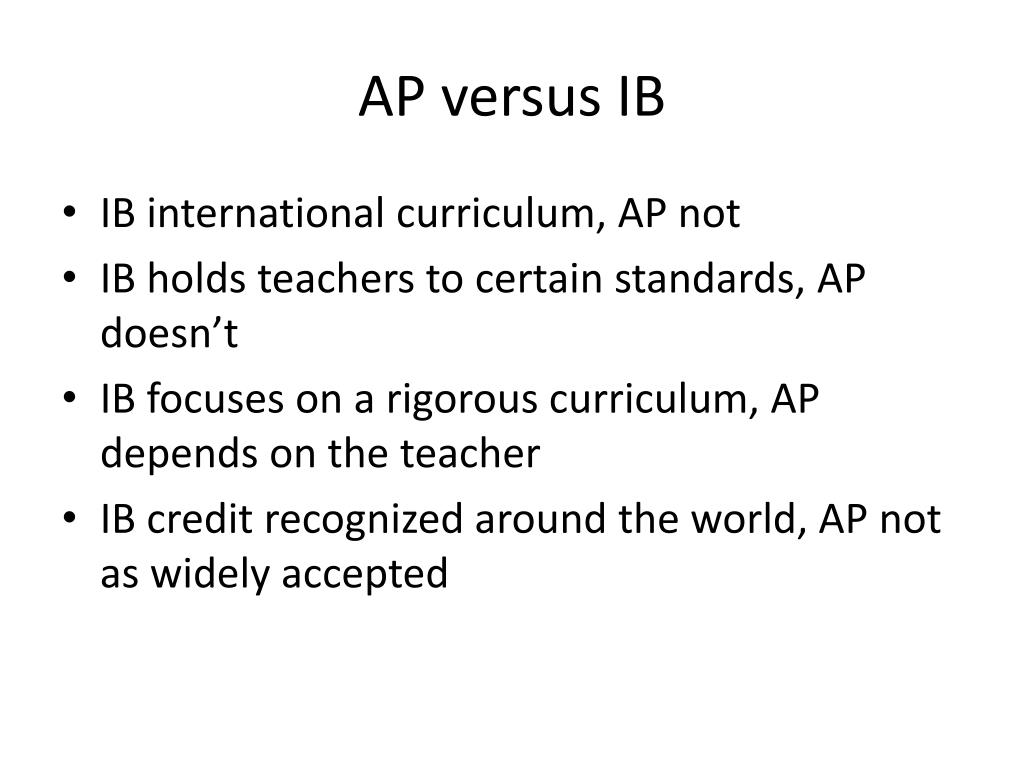

However, a few schools do offer IB courses with the option to take individual subjects without completing the entire IB program. The curriculum is designed to be integrated and comprehensive, intended for students to complete all the requirements to work towards the IB diploma. The IB course is both rigorous and thorough, with a special focus on building students’ reading, writing, and critical thinking skills. At least 3 courses must be HL to meet the IB diploma requirements.Īlong with this, they must complete studies in five core disciplinary approaches: Students can take courses from the above subject groups at a standard level (SL) or high level (HL). To get an IB diploma, students must complete studies in six subject groups: This international program has a global focus, with the aim of educating students to become successful global citizens. It originated in Geneva in 1968 but was formally launched in the US only in 1971. The International Baccalaureate (IB) diploma program is a 2-year program for students in grades 11 and 12, that culminates in the IB diploma.
Ib vs ap how to#
Read on to find out more about IB vs AP and how to choose between them. Keep in mind that college admissions consulting can be the perfect avenue for choosing the courses that will make you stand out. Deciding between IB and AP can be tricky, as both are well-known educational programs with their own sets of benefits. Most US high schools offer either IB or AP coursework, though some schools may offer the option of both, or neither. Many parents decide which high school to send their kids to based on the advanced coursework they offer.
Ib vs ap professional#
Some IB and AP courses even count towards professional program requirements such as medical school prerequisites. This advanced coursework can count towards college course credits alternatively, it can help them skip introductory coursework and sign up for more advanced courses in their freshman year of college. These programs allow students to complete college-level coursework in a wide range of subjects while still in high school. IB and AP are the two most popular advanced coursework programs at the high school level. Readers should contact a professional academic, career, or financial advisor before making decisions regarding individual situations.Every early advantage counts in today’s highly competitive academic environment, which is why parents encourage their children to select IB and AP coursework in high school to gain a competitive edge for college admissions.
Ib vs ap series#
Researching the courses your high school offers as well as those accepted by your potential colleges will help you choose which program is a better fit for you.ĭISCLAIMER: The responses provided as part of the Ask a College Advisor series are for general informational purposes only. Summaryįor high school students looking to get a jump-start on college credits, both AP and IB courses are a great option. The College Board provides an online credit policy search that can help you research whether your AP scores will be accepted for college credit. These charts determine if you will receive college credit for qualifying AP or IB scores. Schools and specific academic departments usually offer exam equivalency charts to help students determine which courses and scores will be accepted.

There is typically a maximum number of units that can be transferred, and most schools require a minimum score on AP or IB tests for credit to be awarded. Each college and univeristy has different standards regarding AP and IB equivalency. One of the biggest assumptions that college students make is thinking that their AP or IB scores are guaranteed to be accepted once they reach college. Students can take AP exams with self-study even if they are not enrolled in a corresponding AP course.



 0 kommentar(er)
0 kommentar(er)
